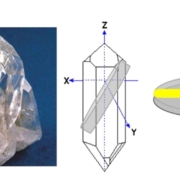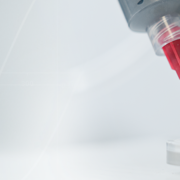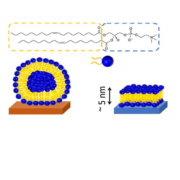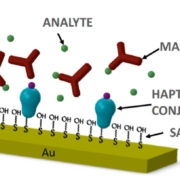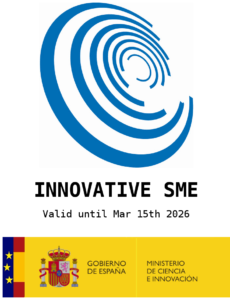V. cholerae MakA is a cholesterol-binding pore-forming toxin that induces non-canonical autophagy
Authors: Xiaotong Jia, Anastasia Knyazeva, Yu Zhang, Sergio Castro-Gonzalez, Shuhei Nakamura, Lars-Anders Carlson, Tamotsu Yoshimori, Dale P. Corkery, Yao-Wen Wu
Journal: J Cell Biol (2022)
Abstract
Pore-forming toxins (PFTs) are important virulence factors produced by many pathogenic bacteria. Here, we show that the Vibrio cholerae toxin MakA is a novel cholesterol-binding PFT that induces non-canonical autophagy in a pH-dependent manner. MakA specifically binds to cholesterol on the membrane at pH < 7. Cholesterol-binding leads to oligomerization of MakA on the membrane and pore formation at pH 5.5. Unlike other cholesterol-dependent cytolysins (CDCs) which bind cholesterol through a conserved cholesterol-binding motif (Thr-Leu pair), MakA contains an Ile-Ile pair that is essential for MakA-cholesterol interaction. Following internalization, endosomal acidification triggers MakA pore-assembly followed by ESCRT-mediated membrane repair and V-ATPase-dependent unconventional LC3 lipidation on the damaged endolysosomal membranes. These findings characterize a new cholesterol-binding toxin that forms pores in a pH-dependent manner and reveals the molecular mechanism of host autophagy manipulation.
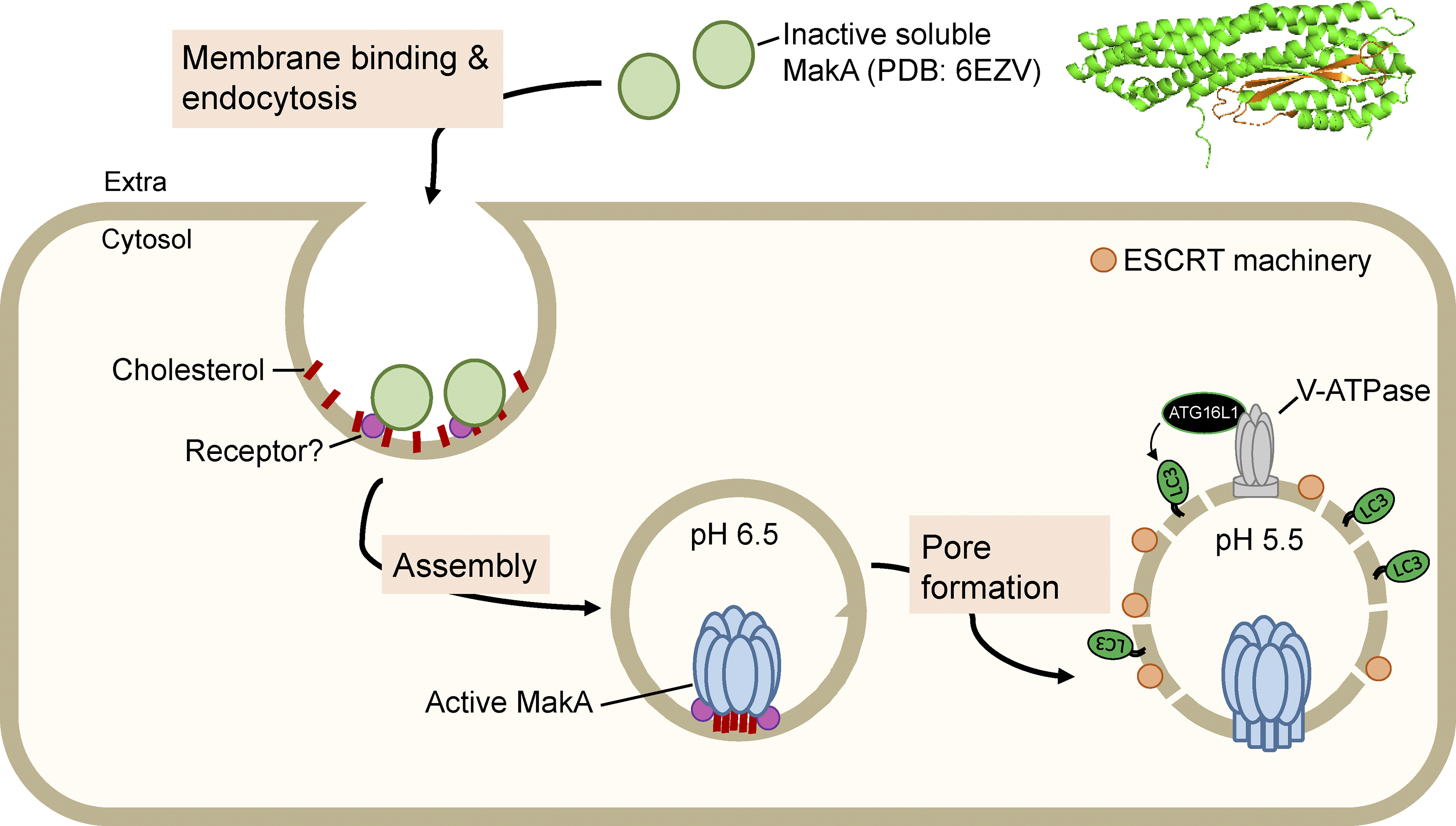
You may read the full paper here.
V. cholerae MakA is a cholesterol-binding pore-forming toxin that induces non-canonical autophagy





